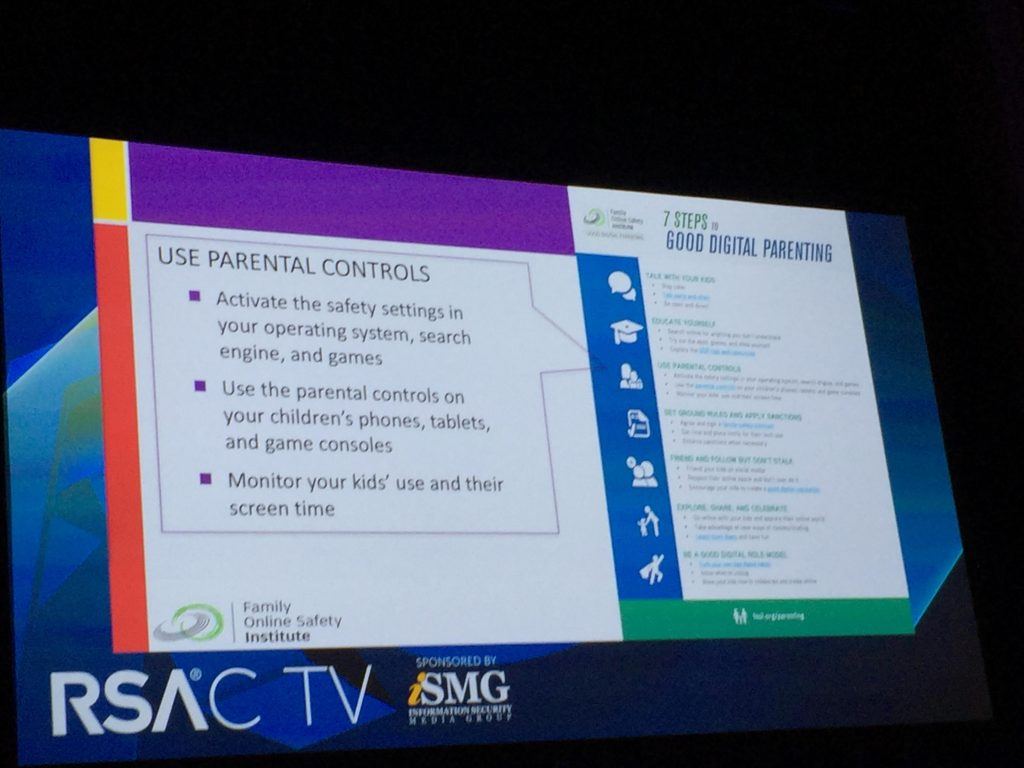During the RSA Conference in San Francisco Stephen Balkam, Founder and CEO of the Family Online Safety Institute gave a presentation focused on the Risks, Harms and Rewards of our and or Kids’ Online Lives.
As you may have picked up from some of my earlier posts on Kaspersky Daily, this topic is really something that weighs heavily on me as I am the parent of two young children. While the presentation held my attention, some of the facts and figures that Balkam discussed in his talk were quite alarming as we start to see millennials become parents and also raise children who are in an age where their digital lives start before birth. In fact, according to Balkam 46% of millennials have posted a photo of their child prior to their first year of life – including many who share photos of the child while in utero.
Decline of empathy
But photos are not the only thing the digital era has changed. In a study from the University of Michigan, it was shown that there was a 40% decline in empathy among college students. That could be tied to the increased shift to lives becoming more and more digital. Digital avatars of their online friends seem more interesting than real people and their real problems.
This trend is not only alarming for the young, but has also become an industry unto itself for the elderly as a rise of caring machines. As the millennial generation continues to mature and move through the circle of life, we should only see machines like this continue to gain market share.
Tips for #parents: Six things you need to STOP doing on social media #cybersecuritymonth https://t.co/t0kI8kUtKg pic.twitter.com/4uNxcWghyL
— Kaspersky (@kaspersky) October 6, 2015
Digital dependency
In the age that we live in, we are connected to our devices. Our Digital Amnesia research proved this sad fact that we have all fallen victim to and also have had our memories altered a bit by digital devices. Now while that is bad from an individual standpoint, its magnitude only grows when you throw a parental lens on it.
You see while we become more dependent on our devices, it can add an additional barrier for our children to overcome with us as their parents.
My risky gamble: 24 hours without a #smartphone https://t.co/eze99as560 #digitalamnesia pic.twitter.com/RupoKf9LAO
— Kaspersky (@kaspersky) July 22, 2015
Confused?
You shouldn’t be. If you grew up with a sibling or have more than one child, you know how hard it can be to get attention. Still skeptical? Do you get pissed off when your partner pays more attention to their Facebook, Instagram or texts than you? It’s OK to admit it.
Now role play for a second and think about if you were that 2-year old trying to get a snuggle with you. Or to tell you all about the picture they just drew for you?
So what can you do?
Good digital parenting
One of the cooler things that I took away from the talk was that we can fix this. Balkam noted that his organization has a 7-step guide for Good Digital Parenting. It is a good read and something that all parents should check out.
A big takeaway from both the talk and the guide is that parents need to be hands on when it comes to helping their children discover, explore and adopt technology. It is our duty to help them learn what they can do as well as precautions that they can take. It could also lead to a more open relationship, as they get more involved with the web moving forward in regards to asking questions that come up from seeing sketchy sites.
Personal anecdote
Over the course of the day, I kept replaying the talk and asking myself how I have seen myself change. While I am in no way perfect, I can see ways that my personal usage of tech has changed when it comes to my kids. The biggest one, that I think all parents can benefit from, is putting the phone down when I get home and staying off the computer.
While there are some exceptions that will change this, I proactively do this daily. The impact is definitely night and day and is something that my wife has noted contributing to better communications with the kids and her, along with reducing some stressors in the home that were caused by inattentiveness.
 connected devices
connected devices


 Tips
Tips